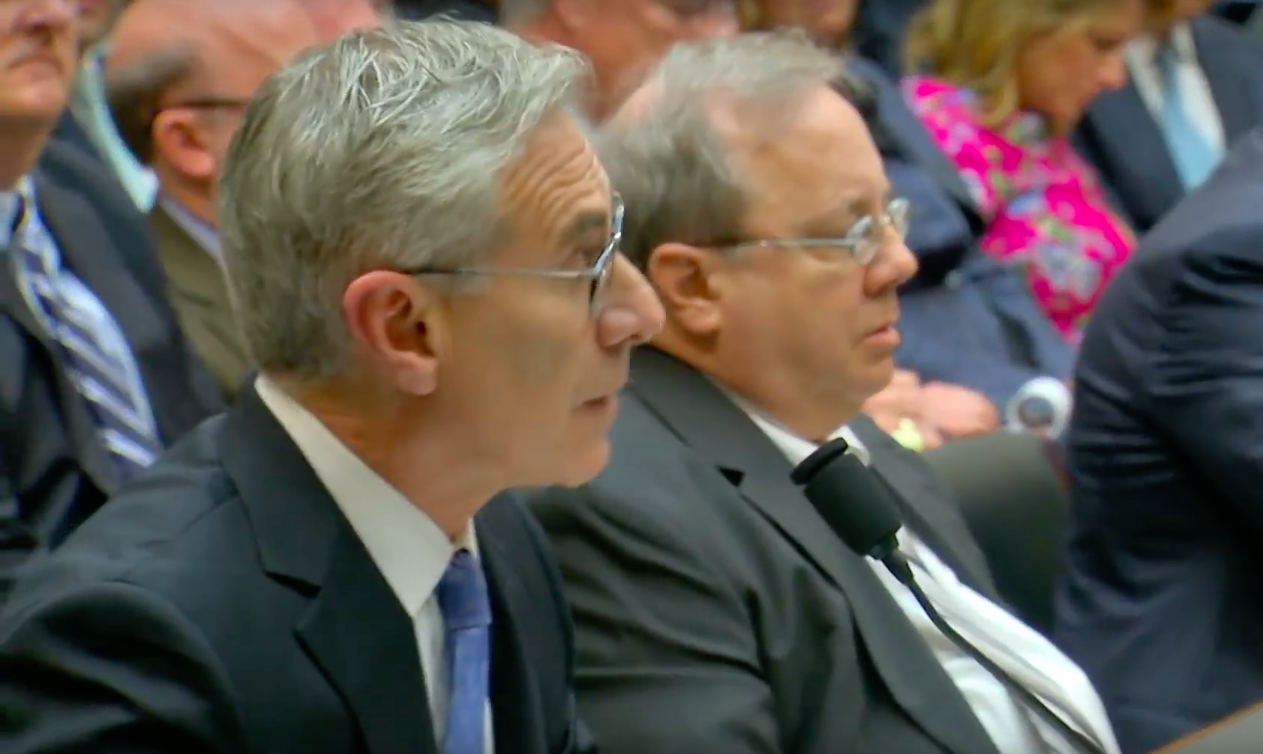
Executives from five major drug distribution companies appeared before a House subcommittee last week to discuss the role that their companies played in flooding small West Virginia towns with excessive amounts of opioid pills.
During the testimony, one executive said he believes his company contributed to the opioid crisis in the state with the nation’s highest overdose rate. Another said that in hindsight, his company should have handled the situation differently, according to USA Today.
The House investigation is focused on the town of Williamson, West Virginia. The town of 2,900 people received 10.2 million hydrocodone pills and 10.6 million oxycodone pills between 2006 and 2016, which were delivered to two pharmacies just blocks apart.
“[Our] decisions allowed the two pharmacies to continue to receive certain volumes of hydrocodone and oxycodone from Cardinal Health for longer than I think they should have, based on what I have since learned about the circumstances surrounding those pharmacies,” said Cardinal Health’s Executive Chairman George Barrett. “With the benefit of hindsight, I wish we had moved faster and asked a different set of questions. I am deeply sorry we did not.”
However, when the subcommittee Chairman Rep. Gregg Harper asked Barrett and the other executives whether they believed the actions by them or their companies contributed to the opioid crisis, Barrett denied responsibility.
“No, sir, I do not believe we contributed to the opioid crisis,” he said.
Miami-Luken Chairman Joseph R. Mastandrea was the only executive to admit that his company had contributed to the crisis. His company sold 6.4 million hydrocodone and oxycodone pills to Tug Valley Pharmacy, one of the Williamson pharmacies, from 2008 to 2015. Between 2008 and 2009 it tripled the amount of opioids being distributed to Williamson.
Another executive, Steven Collis, chairman and chief executive officer of AmerisourceBergen, said that the drug distributors have become more aware of the dangers of opioids. He called on the Drug Enforcement Administration (DEA), which oversees pharmaceutical distribution companies, to update policies.
“We want to be part of the solution to the opioid crisis, which we believe can be conquered while keeping opioids available for patients who legitimately need them,” Collis said, before adding, “In order to conquer this problem, it is imperative that the DEA come to the table and work with all stakeholders in the supply chain in a more cooperative and collaborative manner.”
Rep. David McKinley, a Republican from West Virginia, took a harsh stance toward the company executives.
“The fury inside of me right now is bubbling over with how we are going to address this problem,” he said. “And for several of you to say you had no role whatsoever in this, I find particularly offensive, when we’ve had over 900 people a year dying in West Virginia because of lack of attention” on the part of the distribution companies.
“Deflecting responsibility, saying I just had to fill the order—you had a role. You had a role.”